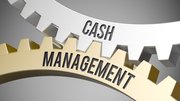Article
Politics
Despite its burgeoning status, the ATM Industry Association's Government Relations Committee is already making significant strides in stopping knee-jerk ATM legislative action.
Despite its burgeoning status, the ATM Industry Association's Government Relations Committee is already making significant strides in stopping knee-jerk ATM legislative action.
The committee was formed in January when California and other states reacted to an NBC "Dateline" report that erroneously implied that ATM fraud was widespread and easily accomplished. (Read related story:Playing by the rules -- and punishing those who aren't)
In
Offers the best in reliable ATM equipment, courteous customer service, and revenue-generating programs so owning an ATM is easy and profitable. 
|
"I think within the next year, I'd say it's probable that ATMIA may employ one or two lobbyists to assist in those states where ATM legislation is a hot-button item," said Michael Keller, general counsel for Houston ATM operator Cardtronics.
In the meantime, several ATM-related bills have been amended, vetoed or held up for further discussion in states including California, Mississippi, New Jersey and Louisiana -- in large part, thanks to the committee's action.
"Some of these bills are pretty draconian. It gets your attention," said Keller, who serves along with Sandra Hartfield, president of Palm Desert National Bank's Electronic Banking division, as co-chair of the committee.
Committee members and others fear that accounts of alleged ATM abuses like the "Dateline" report ignore current consumer protections and can lead legislators to propose bills based on inaccurate or incomplete information.
-- Mike Keller, co-chair, ATMIA Government Relations Committee |
"A lot of legislators think crime is rampant, so...this is an education process," Keller said. "But we also listen to them. We're not opposed to supporting legislation we think is worthy and not unduly cumbersome or ineffective."
Cooperation in California
Encouraging to Keller and other committee members is that several state legislatures have been cooperative when considering ATM-related legislation.
Keller, Hartfield and Lana Harmelink, ATMIA's international director of operations, all met with California lawmakers and helped them draft significant changes to a bill that proposed licensing independent ATM operators. The Government Relations Committee was established soon afterward.
(Read related stories:Calif. lawmakers intro bill to regulate independent ATMs andAmended ATM bill passes Calif. Assembly)
"The California one is really what prompted us to pull together and work together on these types of bills," Harmelink said. "We met several times with the legislative staff and testified in an assembly hearing in April and amended a very onerous bill to the point of codifying regulations that are already in place in the industry."
The ATMIA committee agreed that the bill should include civil penalties for any ATM operator who doesn't abide by current regulations.
"We compromised, and are very happy with the outcome," Harmelink said.
The committee recently hired a company called Stateside Associates to help it monitor ATM issues in all 50 states. Because the 35 committee members are spread across all regions of the country, ATMIA can generally send members to visit their own state lawmakers.
Looking at a lobbyist The monitoring will help ATMIA determine if a full-time lobbyist is needed. At the same time, Harmelink and others are working to form alliances with other organizations to help share the expense.
For more info on ATMIA's Government Relations Committee:lana@atmia.com |
"Our goal is to work with other associations such as convenience stores and other electronic transaction associations. It not only would lessen the expense, it also would be a larger group with a larger voice," Harmelink said.
Harmelink would like to see a federal initiative to create uniform ATM regulations nationwide, but that isn't likely.
"In a perfect world, I could see where that would be attractive," Keller said, "but the bottom line is that we have 50 states with 50 legislatures, and they're going to do things."
Earlier this year, Tucker Foote, a staff member with the House of Representatives' Committee on Financial Services, indicated there was little interest in ATM regulations among federal legislators at this point because of the relatively small impact on consumers.
Keller believes ATMIA may instead likely use lobbyists in targeted states.
"One of the things the committee is undertaking to determine is if there are key states where a full-time lobbyist would be appropriate," he said. "It's very difficult to show up at a state capital and introduce yourself to folks after they've presented legislation or taken a position. Better to have a lobbyist on board who can introduce you beforehand."
Harmelink is understandably proud of what the committee has been able to accomplish thus far. In addition to the amended legislation in California, successful efforts have included:
- In Mississippi, the committee persuaded Gov. Haley Barbour to veto a bill that could have allowed state banks to impose ATM fees but would have restricted non-bank ATMs from doing so -- creating an uneven playing field.
- In New York, where a number of bills have been proposed ("Many of them conflicting," noted Keller), action has been held off-- although Keller concedes this might be a case of the calm before the storm.
"To be very frank, the New York legislature was tied up with budgetary affairs, so ATMs had very low priority," he said. "So who knows? We might have had no impact at all there. But we did find out who is who and met those folks, and we know who to see in the next several years."
Keller isn't surprised that the committee has generated such effective work by its members, since legislation has the potential of affecting the livelihood of everyone in the ATM industry.
"It's an active committee because so much activity is being proposed," he said. "A lot of that was generated by the 'Dateline' report and other hot publicity events. By and large, we've been successful in educating lawmakers that the industry isn't as it has been portrayed in those types of pieces."
Included In This Story
ATM Industry Association (ATMIA)
The ATM Industry Association, founded in 1997, is a global non-profit trade association with over 10,500 members in 65 countries. The membership base covers the full range of this worldwide industry comprising over 2.2 million installed ATMs.
 This story and all the great free content on ATM Marketplace is supported by:
This story and all the great free content on ATM Marketplace is supported by:














